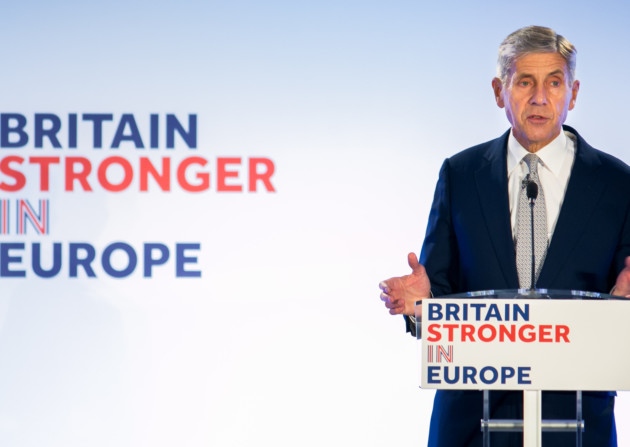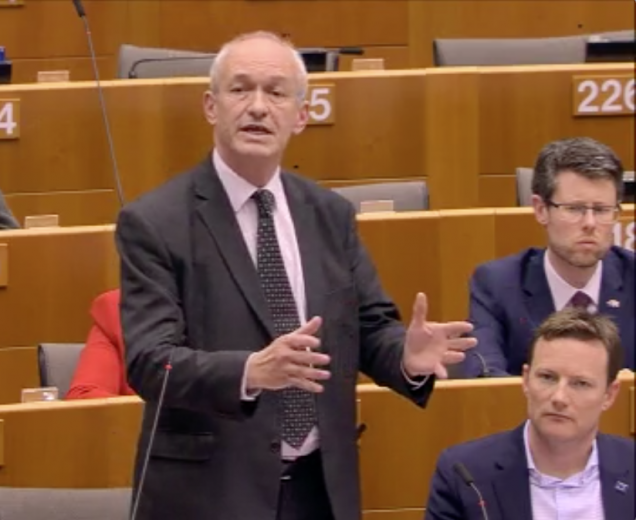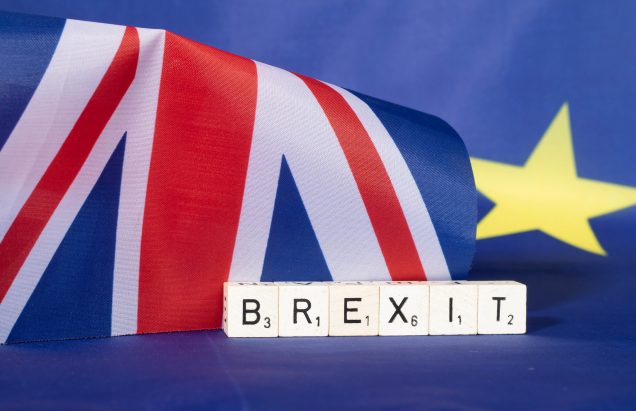This week, the Stronger In campaign sent a newsletter called Europe & You to households across Britain. It does a good job of presenting the hard-headed economic case for our continuing EU membership.
Earlier this week, a group of journalists got together to launch an excellent new initiative called InFacts, dedicated to fact-checking EU campaign claims. Their first target was the brochure by the so-called Labour Leave fringe group that surfaced last week, and their piece-by-piece demolition is well worth a read.
I thought it might be interesting to give Stronger In the same evidence-based treatment, highlighting the sources behind their six key facts and providing some extra information about each one. So if you want to know more about anything you’ve read in the newsletter you received this week, read on, and click any of the links.
1. Over 3 million UK jobs are linked to our trade with the EU – that’s one in every ten UK jobs.
This data was collected and published by the House of Commons Library, the politically neutral research service for MPs. The actual figure is between 3.3 million and 3.5 million jobs, depending on how you calculate it. This figure was calculated on a ‘value-added basis’ — that is, it shows the number of additional UK jobs created through trade with our EU partners.
2. Being in the EU means lower prices because it’s cheaper to trade and there is more choice — saving you on average £450 a year.
One of the key benefits of the EU is to allow businesses in any EU country to trade freely across the entire single market, giving UK industry an effective market of more than 500 million consumers. This drives down shopping prices for two reasons. Firstly, there are no tariffs or other duties to pay on goods from neighbouring countries. Secondly, more choice means more competition, including on price [link is to a UK government study, a large pdf]. Using data from an independent US study, the European Commission calculated these benefits to be about £450 per person.
EU action delivers even more dramatic benefits for British families when travelling. Mobile phone roaming charges, once a huge and unpredictable cost for hapless travellers, have been cut repeatedly through a series of EU-wide agreements and will be eliminated altogether next year. Low-cost airlines have made air travel cheaper and could not have come into existence without EU action.
We can only deliver these benefits by acting jointly with our EU partners, and all would be threatened if we were to walk out.
3. While being in the EU costs each household less than a pound a day, independent experts estimate the benefits are worth £3000 a year to the average household, due to lower prices and more jobs, trade and investment.
The cost of EU membership works out at less than a pound a day per household, according to the Office for National Statistics. That takes into account what we pay into the shared budget and what we receive from it (for instance, for regional funding or for research programmes), as well as the amount we receive back in our special rebate (which reduces our net contributions by about 66%).
But it does not take into account the massive economic benefit we gain through lower prices, jobs and trade. That has been calculated as around £3000 per year on average, by the Confederation of British Industry.
Even this figure still doesn’t take into account other financial benefits: collaborating on scientific research, replacing 28 sets of national regulations with one shared set, fighting cross-border tax evasion and agreeing common tax principles to avoid a race to the bottom, working together to fight cross-border crime efficiently, allowing free movement so other EU citizens can contribute to the British exchequer and UK citizens can take up work anywhere in Europe, and so on.
4. We are safer thanks to the European Arrest Warrant, which means we can arrest criminals across the EU — we would lose this if we left.
The European Arrest Warrant has two very important benefits. Firstly, it allows us rapidly to apprehend fugitives and return them here to face British justice. Secondly, it means we can rapidly deport foreign fugitives who flee to the UK. Before we had shared EU rules, extradition took weeks, months or years. Now it takes hours or days.
5. 200,000 UK businesses trade with the EU — helping them create jobs here in the UK.
This one is simply indisputable trade data from HM Revenue & Customs, showing how closely interwoven British trade is with our EU partners.
6. The UK gets £66 million of investment every day from EU countries — creating even more jobs and opportunities for UK families.
The Office for National Statistics has calculated how much money is invested in the UK by businesses and individuals in other EU countries as part of the single market. This is in addition to receipts from the EU shared budget, and in addition to our rebate.
The vote will be final: if the UK decides to leave, we will leave. There will be no going back.
For a while, it was fashionable to suggest that it might be possible for the UK to vote to leave, realise its mistake, and vote again to change its mind. But the government has comprehensively ruled out this option. If we vote to quit the EU, there will be no going back.






One Comment